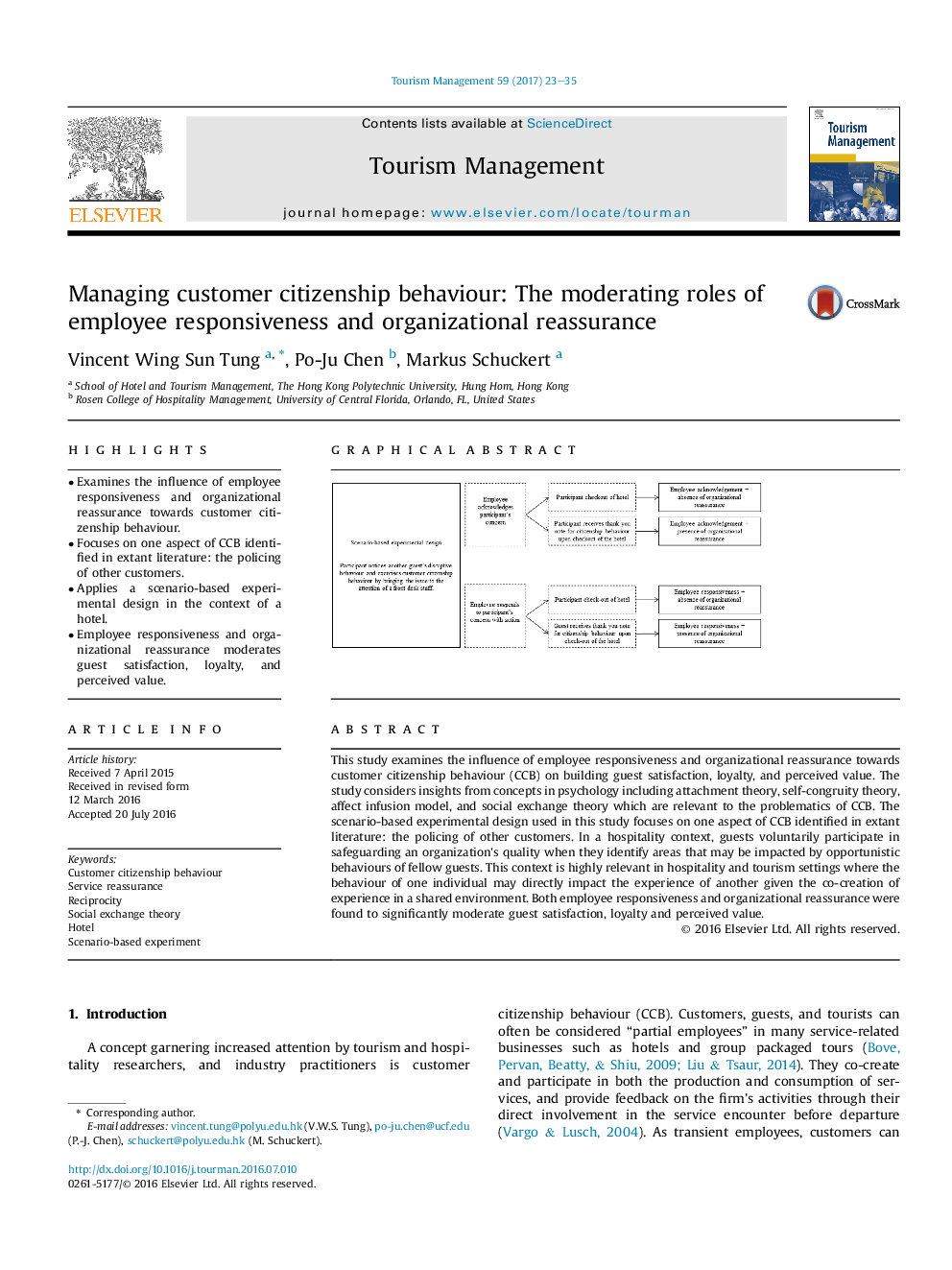| Article ID | Journal | Published Year | Pages | File Type |
|---|---|---|---|---|
| 1011799 | Tourism Management | 2017 | 13 Pages |
•Examines the influence of employee responsiveness and organizational reassurance towards customer citizenship behaviour.•Focuses on one aspect of CCB identified in extant literature: the policing of other customers.•Applies a scenario-based experimental design in the context of a hotel.•Employee responsiveness and organizational reassurance moderates guest satisfaction, loyalty, and perceived value.
This study examines the influence of employee responsiveness and organizational reassurance towards customer citizenship behaviour (CCB) on building guest satisfaction, loyalty, and perceived value. The study considers insights from concepts in psychology including attachment theory, self-congruity theory, affect infusion model, and social exchange theory which are relevant to the problematics of CCB. The scenario-based experimental design used in this study focuses on one aspect of CCB identified in extant literature: the policing of other customers. In a hospitality context, guests voluntarily participate in safeguarding an organization's quality when they identify areas that may be impacted by opportunistic behaviours of fellow guests. This context is highly relevant in hospitality and tourism settings where the behaviour of one individual may directly impact the experience of another given the co-creation of experience in a shared environment. Both employee responsiveness and organizational reassurance were found to significantly moderate guest satisfaction, loyalty and perceived value.
Graphical abstractThe effects of employee responsiveness and organizational reassurance towards customer citizenship behaviour on guest satisfaction, loyalty, and perceived value in a hotel setting.Figure optionsDownload full-size imageDownload as PowerPoint slide
